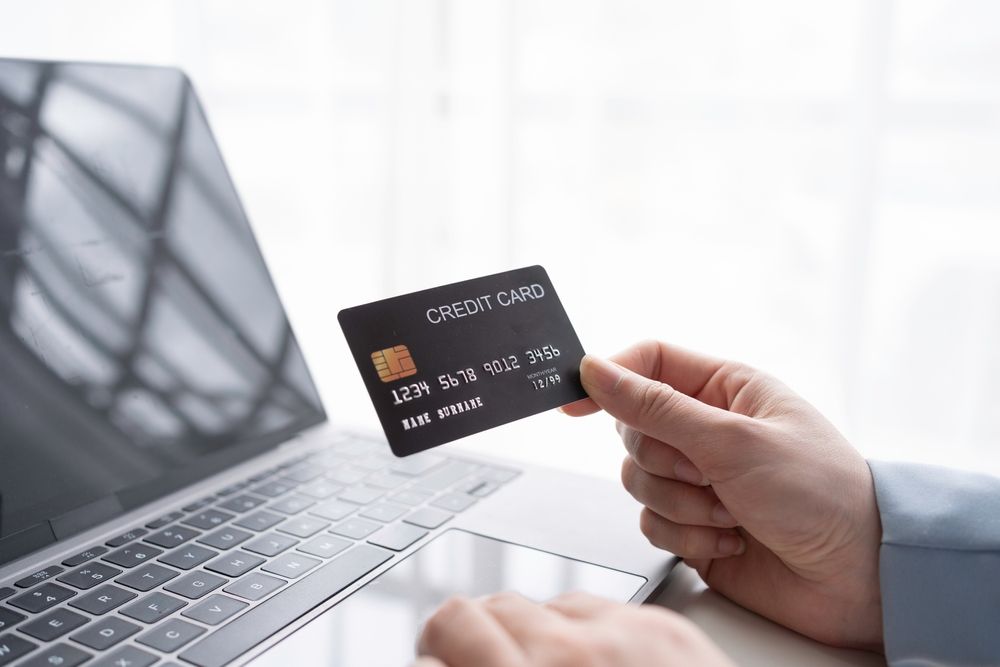Credit cards offer convenience, rewards, and a line of credit when you need it, but misusing them can lead to financial challenges. Avoiding common mistakes can help you maintain good credit, avoid debt, and maximize the benefits of your card. Here’s a guide to help you sidestep the most frequent credit card pitfalls and use credit responsibly.
1. Missing Payments
Missing even one credit card payment can have significant consequences, from late fees to a hit on your credit score. Consistent, on-time payments are essential for building and maintaining good credit.
How to Avoid This Mistake:
- Set Up Automatic Payments: Enroll in automatic payments for at least the minimum amount due to ensure you never miss a payment.
- Use Payment Reminders: If you prefer manual payments, set reminders on your phone or calendar to pay your bill a few days before the due date.
- Contact Your Card Issuer in Emergencies: If you miss a payment, contact your card issuer. They may waive the late fee if it’s your first missed payment and help you avoid further issues.
2. Only Paying the Minimum Balance
Paying only the minimum balance on your credit card keeps you in debt longer and leads to high-interest charges on your remaining balance. Over time, this can make it difficult to reduce your debt, especially if you’re paying high interest rates.
How to Avoid This Mistake:
- Aim to Pay the Full Balance: Whenever possible, pay your full balance to avoid interest charges.
- Prioritize High-Interest Debt: If paying the full balance isn’t possible, focus on higher-interest credit cards first.
- Make Multiple Payments: Consider making smaller payments throughout the month, which reduces your balance and interest.
3. Ignoring Interest Rates and Fees
Credit card interest rates and fees vary widely, so it’s essential to understand these costs to avoid unnecessary expenses. Some cards may have high annual fees, balance transfer fees, or cash advance fees that can add up quickly.
How to Avoid This Mistake:
- Read the Fine Print: Review your card’s terms, especially regarding interest rates, fees, and penalties.
- Choose Cards with Low or No Annual Fees: If you don’t use rewards heavily, a no-fee card may be more beneficial.
- Avoid Cash Advances: Cash advances come with high fees and interest, so it’s best to avoid them unless absolutely necessary.
4. Overlooking Your Credit Limit
Maxing out your credit card can negatively impact your credit score and lead to over-limit fees on some cards. Credit utilization, or the amount of your credit limit you’re using, plays a significant role in your credit score.
How to Avoid This Mistake:
- Keep Utilization Below 30%: Aim to use less than 30% of your credit limit. For example, if your limit is $5,000, try to keep your balance under $1,500.
- Request a Credit Limit Increase: A higher credit limit can help lower your utilization if you maintain a similar balance. However, avoid increasing spending as a result.
- Monitor Your Spending: Regularly check your balance to stay aware of how close you are to your credit limit.
5. Opening Too Many Cards at Once
Opening multiple credit cards in a short period can lower your credit score, as it results in hard inquiries and can indicate to lenders that you may be overextended. Additionally, managing several cards can be difficult and increase the risk of missed payments.
How to Avoid This Mistake:
- Limit New Applications: Only apply for credit when necessary and avoid opening several cards within a few months.
- Consider Your Credit Score: Before applying, check your credit score. If it’s already on the lower end, consider waiting to open a new card.
- Space Out Applications: Wait at least six months to a year between credit card applications to avoid multiple hard inquiries impacting your score.
6. Closing Cards Too Soon
Closing a credit card account can negatively impact your credit score by reducing your overall available credit and shortening your credit history. Both of these factors are important to maintaining a strong credit profile.
How to Avoid This Mistake:
- Keep Older Accounts Open: Older accounts contribute to a longer credit history, which benefits your credit score.
- Use Infrequently Used Cards Occasionally: Make a small purchase and pay it off to keep the account active.
- Close High-Fee Cards Only: If a card has high fees and little benefit, consider closing it but be aware of the potential impact on your score.

7. Misusing Rewards Programs
Credit card rewards programs are great for earning cash back, points, or miles, but overspending to chase rewards can lead to debt. Misunderstanding the terms of your rewards program can also result in missed opportunities or even forfeiture of points.
How to Avoid This Mistake:
- Choose a Card that Matches Your Spending: Select a rewards card that aligns with your regular expenses (e.g., groceries, travel, dining).
- Avoid Overspending for Rewards: Only charge what you can pay off in full each month, regardless of potential rewards.
- Monitor Expiration Dates: Check if your rewards have an expiration date and redeem them in time to avoid losing value.
8. Using Your Credit Card for Non-Essentials
It can be tempting to use your credit card for non-essential purchases like luxury items or vacations. While occasional splurges are okay, consistently using your credit card for these purchases can lead to unnecessary debt.
How to Avoid This Mistake:
- Separate Essential and Non-Essential Purchases: Use your credit card for essentials that you can pay off, and limit non-essential purchases.
- Set a Budget: Determine a monthly budget for discretionary expenses and avoid charging more than this amount.
- Pay Off Splurges Quickly: If you make a large purchase, create a repayment plan to avoid accruing high-interest debt.
9. Ignoring Statements and Transaction History
Many people overlook their monthly credit card statements, assuming they already know their spending. However, reviewing your statements helps you spot unauthorized charges, subscription renewals, or overcharges that can add up.
How to Avoid This Mistake:
- Review Statements Monthly: Look over each transaction to catch errors or fraudulent charges.
- Set Alerts for Purchases: Many banks offer notifications for transactions, helping you stay informed about your spending in real time.
- Address Errors Immediately: Report any discrepancies to your credit card issuer right away to protect yourself and your credit.
10. Neglecting Credit Card Security
With cyber threats on the rise, it’s essential to take precautions to protect your credit card information. Failure to secure your card can lead to fraud, unauthorized purchases, and potentially damage your credit.
How to Avoid This Mistake:
- Use Strong Passwords: For online accounts, use complex passwords and update them regularly.
- Monitor for Fraud Alerts: Sign up for fraud alerts to be notified of suspicious activity on your account.
- Avoid Public Wi-Fi for Purchases: Refrain from using public Wi-Fi when entering sensitive information, as it’s easier for hackers to access.
11. Failing to Understand Balance Transfers
Balance transfers can help you manage debt by moving balances to a card with a lower interest rate. However, many people overlook transfer fees, temporary interest rates, or mismanage repayments, resulting in higher debt over time.
How to Avoid This Mistake:
- Read Terms Carefully: Look for fees, promotional periods, and post-introductory rates when considering a balance transfer.
- Pay Off the Balance Within the Promo Period: Create a plan to pay off the balance during the 0% APR period, or you could face higher interest rates afterward.
- Avoid New Purchases: Some cards apply payments to your transferred balance first, so new purchases can accumulate interest right away.
12. Not Building an Emergency Fund
Using credit cards as a financial cushion in emergencies can lead to debt and long-term repayment issues. An emergency fund can provide the resources you need without relying on credit.
How to Avoid This Mistake:
- Save for Emergencies: Aim to build an emergency fund that covers three to six months of expenses.
- Avoid Relying on Credit for Essentials: Keep credit cards as a last resort for emergencies to prevent high debt accumulation.
- Use Automatic Savings: Set up automatic transfers to a savings account each month to build your emergency fund over time.
Using a credit card responsibly can help you manage expenses, build credit, and take advantage of rewards, but missteps can lead to debt and credit damage. By avoiding these common mistakes, you can make the most of your credit card while keeping your financial health in check. Responsible credit card habits help ensure that you’re using credit as a tool for convenience and financial growth, rather than a source of stress or debt.





